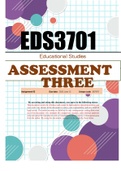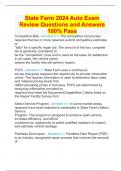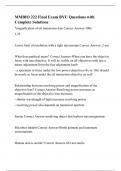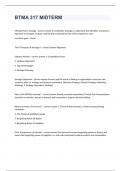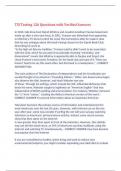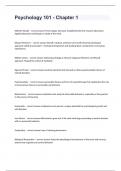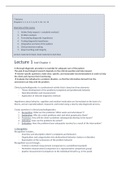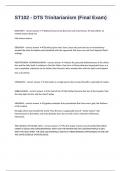Exam (elaborations)
EDS3701 Assessement 3 - Semster 1 - 2023 Answers UNIQUE 887470
- Course
- Education Studies EDS3701
- Institution
- University Of South Africa (Unisa)
EDS3701 Assessement 3 - Semster 1 - 2023 Answers UNIQUE .................Information Processing Theory and Theory of Human b) Which theory do you like and why? (10) c) Explain how you can use each theory to promote teaching and learning inside your classroom.
[Show more]
